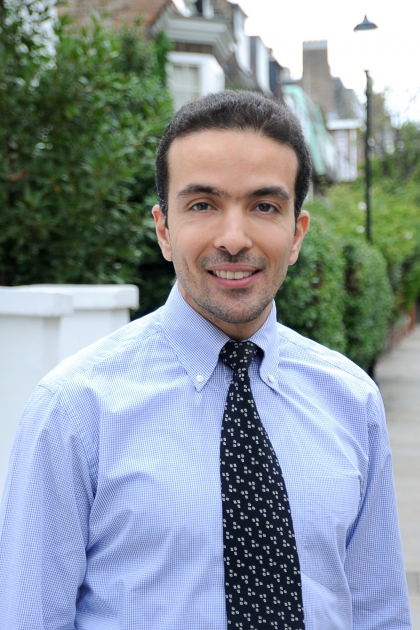
GCC must make the right decisions to harness the potential of renewable energy
The Gulf Cooperation Council (GCC) states show great promise for renewable energy deployment, according to a recent study by management consultancy Strategy& Middle East (formerly Booz & Company), part of the PwC network. To unlock this potential, GCC governments must develop a carefully planned framework and make careful decisions. The transition to a modern, renewables-based energy system is fraught with risk if governments take an ad hoc approach. Instead, they must act quickly and deliberately.
The study shows that renewable energy continues to attract an increasing share of global investment, with annual investments expected to grow by $130 billion, compared to 2016 figures, reaching around $370 billion in 2020. The global investment cumulative total is estimated at $1.5 trillion between 2016 and 2020. GCC countries thus far have made little investment in renewables technology – less than $1 billion in 2016 – and are at risk of falling further behind other countries if they do not create a supportive, coherent policy framework to facilitate renewables investment. While several factors in the GCC make rapid deployment of renewables attractive, there are major structural and institutional factors behind current underinvestment in renewable energy. These include:
-
generous fuel subsidies
-
a mindset that prefers building very large conventional plants to meet rapidly growing demand rather than many smaller renewables projects
-
the danger that existing capacity will be underutilized if renewables enter the energy mix in the wrong way
-
concerns over transmission and distribution networks
-
and, most significantly, unclear regulatory and policy frameworks that discourage the development of renewables.
Dr. Raed Kombargi, partner with Strategy& Middle East, said: “The case for rapid deployment of renewable energy in the GCC is compelling. The GCC has ample solar and wind resources, a regional gas shortage along with growing domestic demand for hydrocarbons as fuel and feedstock, and an affordable means of financing renewable energy. With the right policies and decisions an increasing number of utilities in the GCC could add renewables to their energy supply mix.”
Located in the heart of the global sunbelt, the GCC countries have some of the highest solar exposures in the world; solar power plants in the region can expect 1,750 to 1,930 hours of full-load operation a year, compared to 940 hours in Germany. The region also has the independent power plant (IPP) model, a commercial credit mechanism that makes cheap long-term financing affordable and available through private and foreign investors.
Dr. Shihab Elborai, principal with Strategy& Middle East, said: “The speed of transition to a new energy mix across the GCC is accelerating, with international investors showing considerable interest in renewables. To further take advantage of the renewables opportunities will require considerable funds and commitment, along with a careful approach that minimizes risk.”
In the report, Strategy& has outlined six critical actions for GCC governments to take. Together these actions create a supportive policy framework and can be adapted to the specific circumstances of each of the GCC states. These six steps are:
-
Set ambitious and realistic targets: These provide critical signals to private developers and investors, allowing them to plan for the long-term and arrange the necessary financing well in advance.
-
Define institutional roles and accountabilities: There must be a clear separation between the government’s functions as an asset owner, policymaker, and regulator. This will make decision-making processes transparent, participatory, and accountable.
-
Reform fossil fuel and energy subsidies and reallocate financial resources: Fossil-fuel subsidies cost the GCC around $30 billion in 2016, matching Germany’s renewable energy subsidies in the same year. Reallocating merely a fraction of that subsidy to support private-sector-led developments of renewable energy with the grid could create tremendous value for governments, investors and electricity consumers.
-
Broaden the range of financing instruments available: Credit product innovations can help meet the requirements of the renewables market and increase the liquidity and competitive financing available for new projects. Public utilities and private developers need improved access to corporate bond and sukuk markets (Islamic law compliant bonds).
-
Unify regional standards: The lack of unified renewables creates unnecessary trade and investment barriers. Establishing clear standards for wind and, to a lesser degree, solar would reduce these barriers among GCC countries and the broader Middle East region.
-
Build policymaking and regulatory capabilities: The large-scale deployment of renewable energy through privately led initiatives requires capabilities that are beyond those currently possessed by most ministries. To work together effectively, policymakers, regulators, owners, and operators can upgrade their capabilities in areas like technical and economic analysis, forecasting, simulations, communication, and management.
Commenting on the policy framework, Dr. Yahya Anouti, principal with Strategy& Middle East, said: “The GCC states are in favorable positions to introduce more renewable energy. GCC governments can influence the timing and trajectory of this change, and can quickly get on the path to optimal renewable energy infrastructure development to minimize costs while helping achieve their national economic development objectives with the correct policies and decisions.”



























